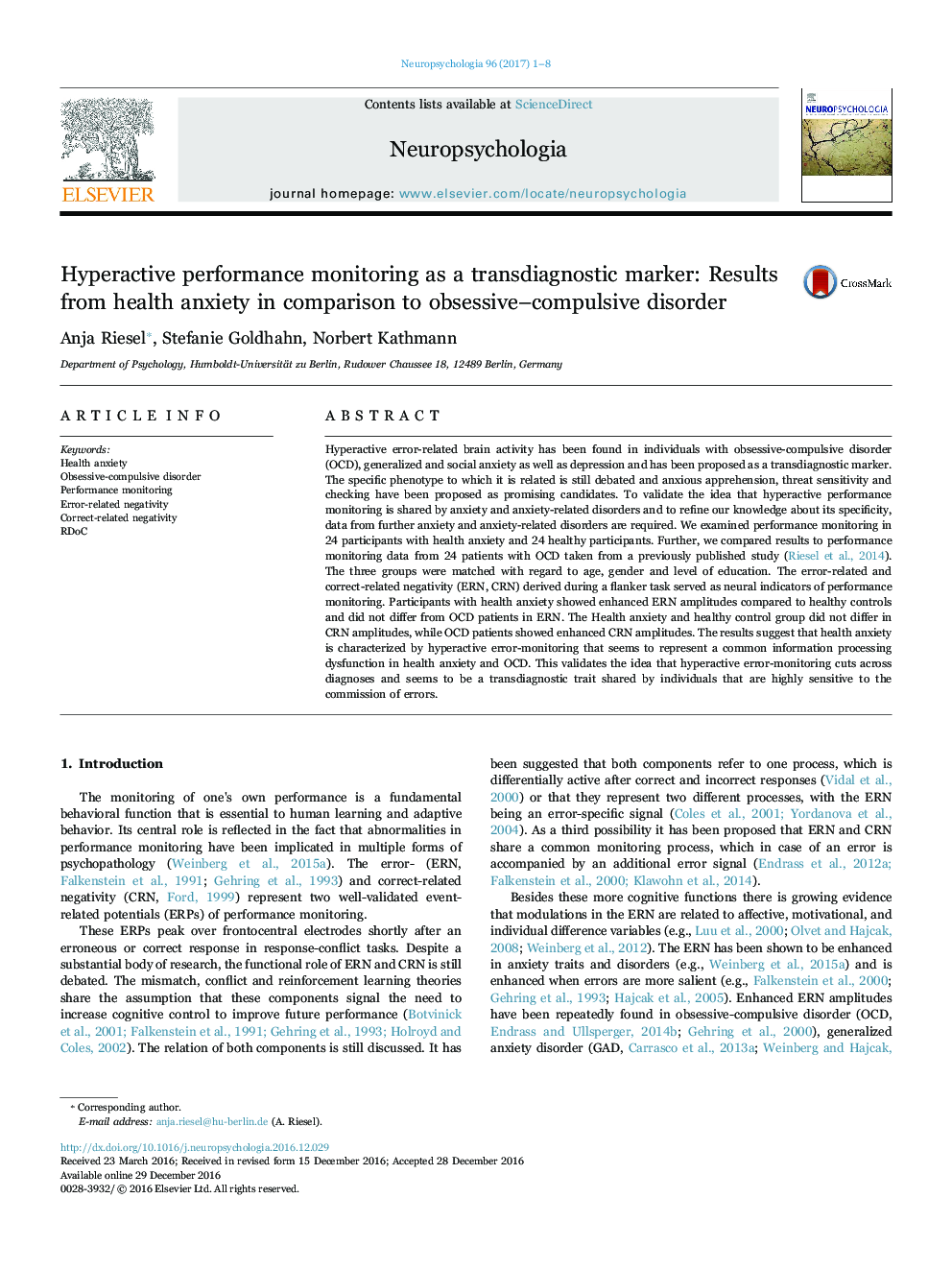| Article ID | Journal | Published Year | Pages | File Type |
|---|---|---|---|---|
| 5045392 | Neuropsychologia | 2017 | 8 Pages |
â¢ERN and CRN were examined in health anxiety and a healthy control group.â¢Results were compared to data of OCD patients taken from a previous study.â¢Participants with health anxiety and OCD showed enhanced ERN amplitudes.â¢Only OCD patients showed enhanced CRN amplitudes.â¢Enhanced error-monitoring seems to be a transdiagnostic marker related to anxiety.
Hyperactive error-related brain activity has been found in individuals with obsessive-compulsive disorder (OCD), generalized and social anxiety as well as depression and has been proposed as a transdiagnostic marker. The specific phenotype to which it is related is still debated and anxious apprehension, threat sensitivity and checking have been proposed as promising candidates. To validate the idea that hyperactive performance monitoring is shared by anxiety and anxiety-related disorders and to refine our knowledge about its specificity, data from further anxiety and anxiety-related disorders are required. We examined performance monitoring in 24 participants with health anxiety and 24 healthy participants. Further, we compared results to performance monitoring data from 24 patients with OCD taken from a previously published study (Riesel et al., 2014). The three groups were matched with regard to age, gender and level of education. The error-related and correct-related negativity (ERN, CRN) derived during a flanker task served as neural indicators of performance monitoring. Participants with health anxiety showed enhanced ERN amplitudes compared to healthy controls and did not differ from OCD patients in ERN. The Health anxiety and healthy control group did not differ in CRN amplitudes, while OCD patients showed enhanced CRN amplitudes. The results suggest that health anxiety is characterized by hyperactive error-monitoring that seems to represent a common information processing dysfunction in health anxiety and OCD. This validates the idea that hyperactive error-monitoring cuts across diagnoses and seems to be a transdiagnostic trait shared by individuals that are highly sensitive to the commission of errors.
